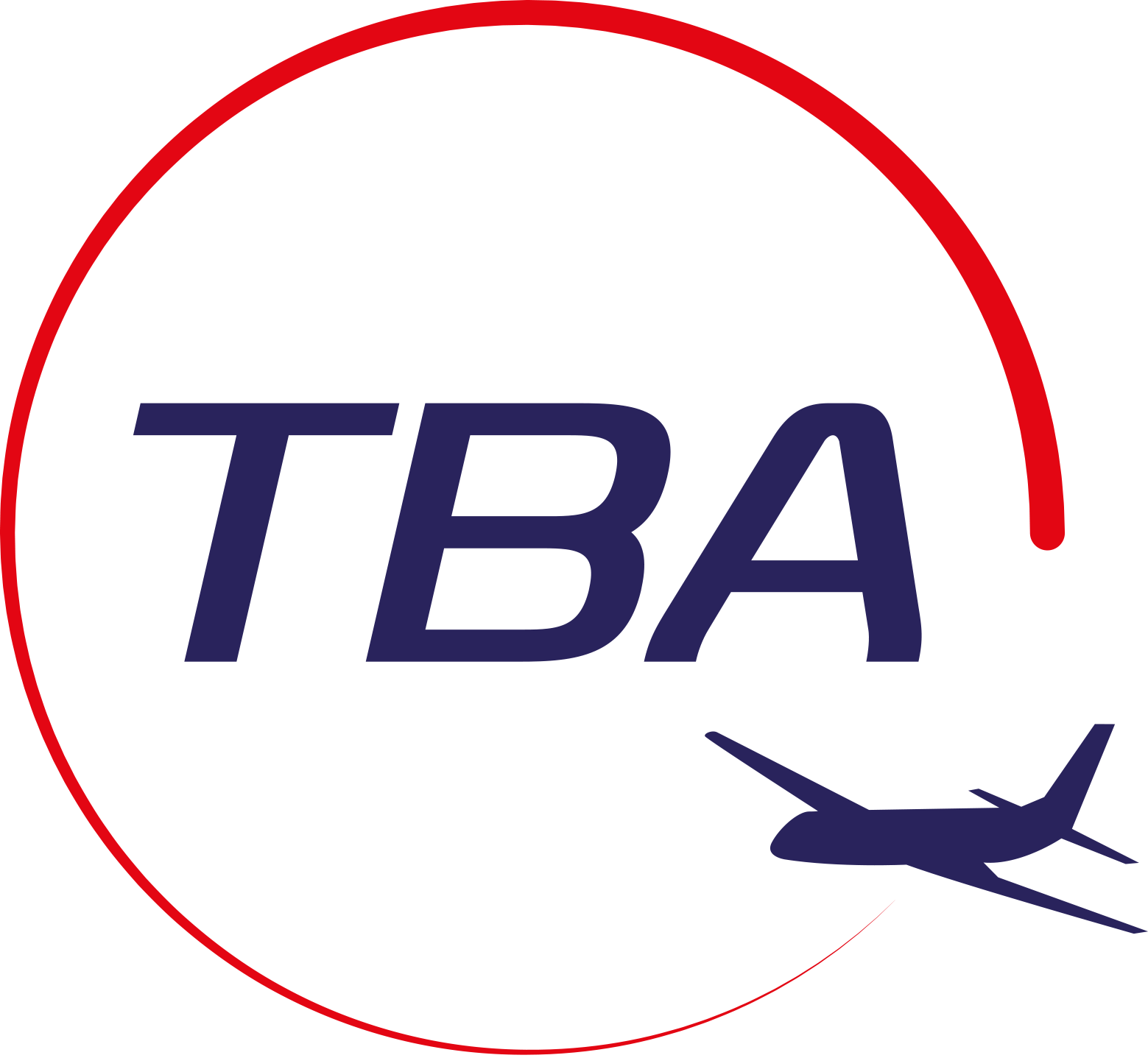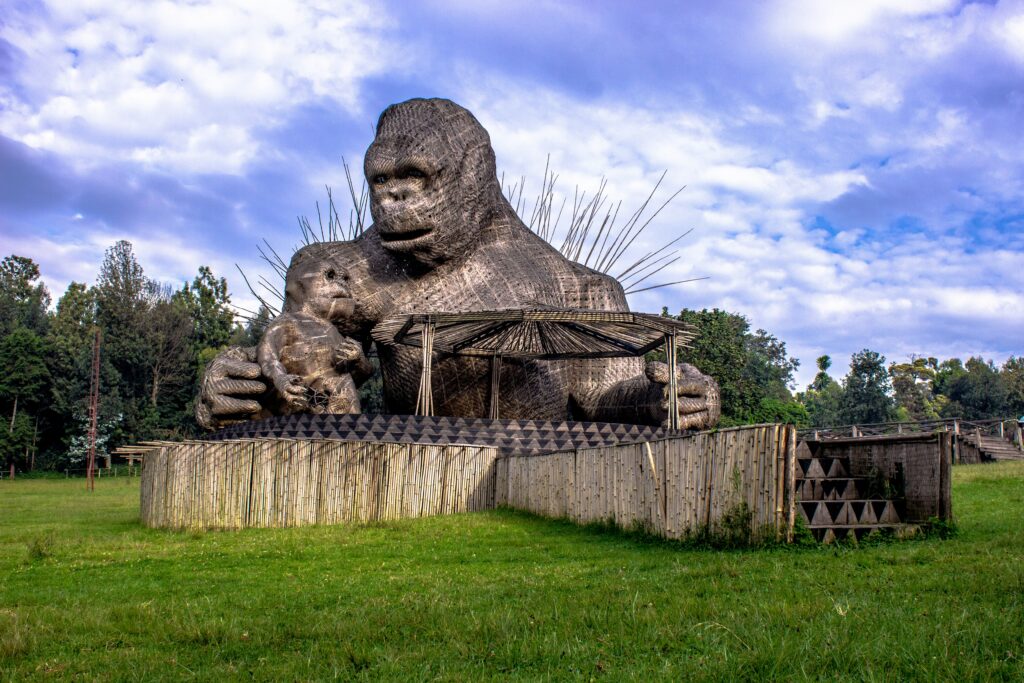
Research and knowledge are the first steps for Rwanda Travel Business Assistance. Here is a fact file for Rwanda to get you started. Contact us if you are looking to start a business in or expand your market to Rwanda. We have consultants ready to help you on the ground in Rwanda.
Eliminate the guesswork from your international trips – Reserve your complimentary consultation call with Travel Business Assistance today.
Basic Facts
Origin of the name: The name Rwanda is derived from the verb ‘kwanda’; it is a Kinyarwanda word meaning growth or expansion; a place to gather; a gift – all three of which perfectly sum up the lounge’s unique offering. Interestingly, Kwanda is said to be the origin of the word Rwanda. When one of the early Rwandan kings was enlarging his realm, he was practising “Kwanda,” which in turn became Rwanda.
History & Independence: The country is originally comprised of many small kingdoms that emerged in the Great Lakes region of Central Africa. The earliest known inhabitants of Rwanda were pygmy hunter-gatherers; ancestors to the Twa population that today comprise 1% of the national population. Prior to the 15th century, a ruler named Gihanga forged a centralized Rwandan state that comprised of cattle-owning nobility, the modern-day Tutsis, and of an agriculturist majority, the modern-day Hutus. The pygmy Twa minority were forest hunters. The kingdom of Rwanda was founded in the 16th century, in the East. Colonial rule officially began in 1895. Following the 1885 Berlin Conference, Rwanda became a German colony, although a permanent German presence was not established in the country for another full decade. In 1919, Rwanda was mandated to Belgium. A UN General Assembly resolution terminated the Belgian trusteeship and granted full independence to Rwanda effective as of July 1st, 1962.
Government: Rwanda is a republic with an executive president and a multiparty democratic system. The president is head of state, head of government and commander-in-chief of the defense forces. He or she is directly elected by universal adult suffrage for a seven-year term and serves a maximum of two terms. Executive power is vested in the president and the cabinet. Members of the cabinet, including the prime minister, are appointed by the president. The cabinet is accountable to the president and to the parliament in accordance with the provisions of the country’s constitution.
Official Language: Today, Rwanda is a melting pot of official languages. Rwanda has four official languages: Kinyarwanda, French, English and Kiswahili. More than 99% of Rwandans speak Kinyarwanda – a Bantu language and the country’s mother-tongue. In 2017, Kiswahili was adopted as fourth official language as it is widely spoken in East African Community (EAC) countries of which Rwanda is a member.
Indigenous Languages: Rwanda is very homogeneous linguistically speaking, Kinyarwanda is spoken by most of the population. There are no other major indigenous languages present.
Population: The analysis of the fifth Rwanda Population and Housing Census (RPHC5) indicates that Rwanda’s population was 13,246,394 as of August 2022.
Time Zone: Rwanda currently observes Central Africa Time (CAT). Central Africa Time is consistent with UTC +2. The Central Africa Time does not have an associated daylight-saving time. The Central Africa Time applies to 10 countries: Botswana, Burundi, Democratic Republic of the Congo (Partly), Malawi, Mozambique, Namibia, Rwanda , South Sudan, Sudan, Zambia, Zimbabwe.
Climate: Rwanda has a tropical climate characterized by its hilly landscape stretching from east to west. The country has four primary climatic regions: eastern plains, central plateau, highlands, and regions around Lake Kivu. The eastern plains receive an annual rainfall of between 700 mm and 1,100 mm, with mean annual temperature oscillating between 20°C and 22°C. The central plateau region enjoys rainfall of between 1,100 mm and 1,300 mm, with an annual mean temperature of between 18°C and 20°C. The highlands, including the Congo-Nile Ridge and volcanic chains of Birunga, benefit from an annual rainfall of between 1,300 mm and 1,600 mm and experience annual mean temperatures between 10°C and 18°C. Regions around Lake Kivu and Bugarama plains get annual rainfall of between 1,200 mm and 1,500 mm with annual mean temperatures between 18℃ and 22℃. Overall, the country’s four climactic seasons are represented through the long rainy season: March to May, and short rainy season: September to November. These seasons alternate with the long dry season: June to August, and short dry season: December to February. Mean annual temperature for Rwanda is 19.1℃, with average monthly temperatures ranging between 19.5°C (September) and 18.5℃ (July). Annual precipitation is 1,170.2 mm. Rainfall is experienced throughout the year in Rwanda, with most significant rainfall occurring from September to May.
Borders: Rwanda neighboring countries are Burundi to the South; Democratic Republic of the Congo to the West; Tanzania to the East; Uganda to the north. Rwanda is a landlocked country and thus has no access to sea or ocean.
Size: Total Rwanda area is of about 26,338 sq km of which land: 24,668 sq km and water: 1,670 sq km. Rwanda is slightly smaller than Maryland in United States, similar to the size of Albania.
Religion: According to the country’s Fifth Population and Housing Census, conducted in August 2022, the population is 40 percent Roman Catholic; 21 percent Pentecostal; 15 percent Protestant, including Anglican, Baptist, Methodist, Episcopalian, and evangelical Christian churches; 12 percent Seventh-day Adventist; 4 percent other Christian; 2 percent Muslim; and 0.7 percent Jehovah’s Witnesses. Several other small religious groups, together constituting less than 3 percent of the population, include animists, Baha’is, members of The Church of Jesus Christ of Latter-day Saints, and a small Jewish community consisting entirely of foreigners. Approximately 3 percent of the population holds no religious beliefs. The majority of Muslims are Sunni, with a small number (200 to 300) of Shia, according to the Rwanda Muslim Community (RMC).
Currency: The Rwandan franc (sign: FRw, and possibly RF] or R₣; ISO 4217: RWF) is the currency of Rwanda. It is subdivided into 100 centimes.
Current exchange rate is of 1237.2 Rwandan franc to 1 US Dollar, or 1507.37 Rwandan franc to 1 Great British Pound (18 October 2023).
https://www.oanda.com/currency-converter/en/?from=RWF&to=USD&amount=1237.2
https://www.oanda.com/currency-converter/en/?from=RWF&to=GBP&amount=1507.37
History and Key Events
Precolonial & colonial Era
- 1300s – Tutsis migrate into what is now Rwanda, which was already inhabited by the Twa and Hutu peoples.
- 1600s – Tutsi King Ruganzu Ndori subdues central Rwanda and outlying Hutu areas.
- Late 1800s – Tutsi King Kigeri Rwabugiri establishes a unified state with a centralised military structure.
- 1858 – British explorer Hanning Speke is the first European to visit the area.
- 1890 – Rwanda becomes part of German East Africa.
- 1916 – Belgian forces occupy Rwanda.
- 1923 – Belgium granted League of Nations mandate to govern Ruanda-Urundi, which it ruled indirectly through Tutsi kings.
- 1946 – Ruanda-Urundi becomes UN trust territory governed by Belgium.
- 1957 – Hutus issue manifesto calling for a change in Rwanda’s power structure to give them a voice commensurate with their numbers; Hutu political parties formed.
- 1961 – Rwanda proclaimed a republic.
- 1962 – Rwanda becomes independent with a Hutu, Gregoire Kayibanda, as president.
Independence
- 1973 – President Gregoire Kayibanda ousted in military coup led by Juvenal Habyarimana.
- 1978 – New constitution ratified; Habyarimana elected president.
- 1991 – New multi-party constitution promulgated.
- 1994 April – Habyarimana and the Burundian president are killed after their plane is shot down over Kigali; a genocide is carried out over Tutsi population and moderate Hutus.
- 2000 April – Ministers and members of parliament elect Vice-President Paul Kagame as Rwanda’s new president.
- 2003 August – Paul Kagame wins the first presidential elections since the 1994 genocide.
- 2006 January – Rwanda’s 12 provinces are replaced by a smaller number of regions with the aim of creating ethnically-diverse administrative areas.
- 2008 September – President Paul Kagame’s Rwanda Patriotic Front (RPF) wins large majority in parliamentary elections.
- 2008 October – Rwanda decides all education will be taught in English instead of French, officially as a result of joining the English-speaking East African Community.
- 2009 November – Rwanda is admitted to the Commonwealth, as only the second country after Mozambique to become a member without a British colonial past or constitutional ties to the UK.
- 2010 August – President Kagame wins new term.
- 2016 January – President Kagame announces that he will stand for the presidency again in 2017, after winning a December referendum on constitutional changes allowing him to serve a third term.
- 2017 August – President Kagame re-elected with 98.8% of the vote in polls.
Rwandan Food
Rwanda is widely known for its wildlife and breathtaking scenery, earning it the nickname “The Land of a thousand hills”. And its cuisine is something you definitely should try when you decide to visit the country. With roots in subsistence farming and cattle rearing, Rwandan cuisine is dominated by homegrown organic vegetables and artisanal milk products. Milk was the drink of choice, especially for wealthier people who owned cattle, and butter was the cooking fat of choice, widely used for frying vegetables. The following is a list of typical Rwandan recipes:
Isambaza (Haplochromis fish) one of the most widely farmed fish species in Lake Kivu (a large freshwater lake located in East Africa). Isambaza has been the signature dish of Western Rwanda for generations.
Isombe (Cassava Leaf Stew) is a true delicacy and remains one of the most popular Rwandan dishes. Its distinct smooth texture and its unique greenish color make it mouth-watering at first glance, making its delicious salty taste even better. It is delicately prepared and features a wide variety of seasonings.
Igisafuliya This dish from Rwanda, which is also known as “Kinyarwanda,” is straightforward but delicious and mostly made of chicken, veggies, and spices. It is specially made with some green plantains and chicken thighs. By adding some hot and green pepper, it can occasionally be made a little spicier.
Akabenzi The meal which is made with pork flesh, is a national favorite in Rwanda. The tender meat is prepared with some vegetables, dry-fried, and then served with boiled rice. It must be tried since the flavors will wow your taste senses!
Igihembe (Red Bean Stew) a traditional stew prepared from peeled red beans. Red beans are among the most cultivated crops in Rwanda, and have been for the past two centuries.
Igihaza (Boiled Squash) Squash grows in the yard of most Rwandan homes. This natural wonder is appreciated for its nutritional value and unique taste. In fact, you will find it in the most prestigious buffets at events or in hotels wherever you go in Rwanda.
Urwagwa Banana-based beer, known as uruwagwa, is a staple in Rwanda. It is made by fermenting banana juice, and sorghum, maize, or millet flour is added as a source of yeast. It is one of Rwanda’s most well-known and traditional drinks; it tastes great!
Rwandan mandazi are little African donuts that are truly addicting. Basically, fried dough, one of my favorite things. These are typically made with less sugar than American style donuts, but they a have subtle flavor of coconut, cardamom and cinnamon. You will love these, and they go perfectly with Rwandan coffee or tea.
Things to do and see in Rwanda
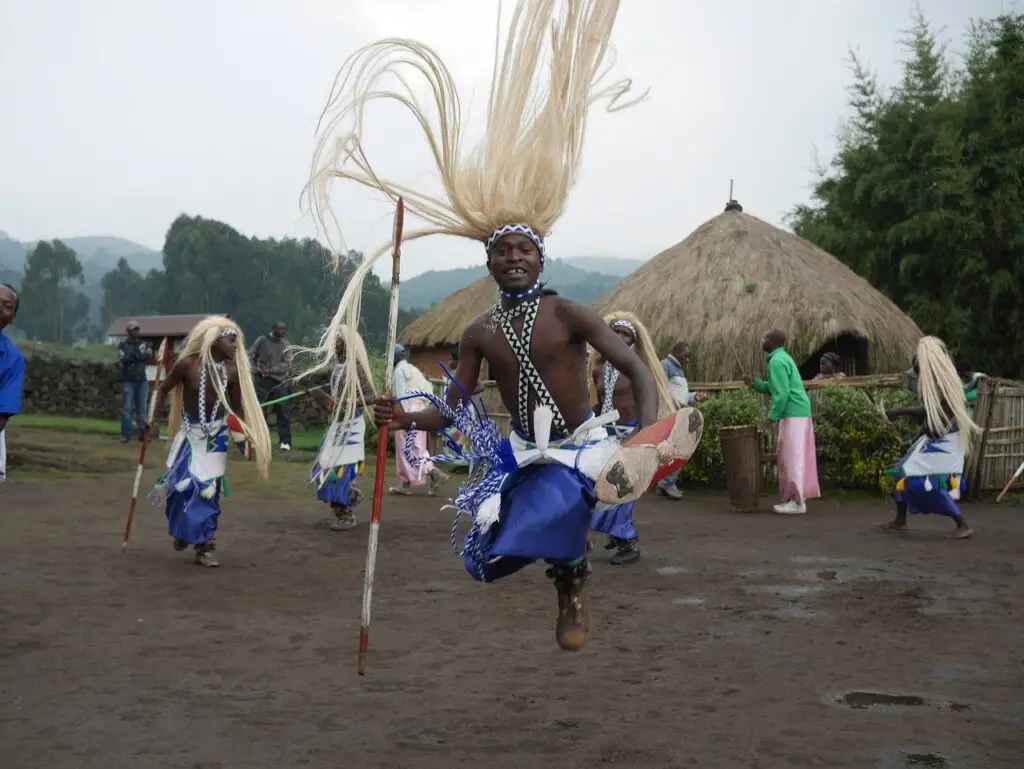
Nestled in the heart of East Africa, Rwanda beckons with a captivating blend of awe-inspiring landscapes, vibrant cultures, and a poignant history of resilience. Known as the “Land of a Thousand Hills,” this picturesque country offers an array of experiences that transcend its compact size. From the lush rainforests of Volcanoes National Park, where majestic mountain gorillas roam, to the reflective waters of Lake Kivu, Rwanda unfolds as a treasure trove for nature enthusiasts.
Beyond its natural wonders, Rwanda’s cities and villages pulsate with the warmth of its people. Engage with the rich tapestry of Rwandan culture, from traditional dance performances to vibrant markets where local crafts and flavors converge. Explore the historical sites that tell the story of the nation’s triumph over adversity, notably the Genocide Memorial in Kigali, a solemn tribute to reconciliation and hope.
This brief guide invites you to explore the enchanting corners of Rwanda, from its verdant landscapes to its vibrant communities, offering a glimpse into the diverse tapestry that makes this East African gem a destination unlike any other.
Kwita Izina Ceremony, is an event like no other on Earth, immersed in cultural meaning and ancient customs. The ceremony of giving a name to a newborn baby has been part of Rwandan culture for centuries and this is something that Rwanda has passed on to their famous mountain gorillas. By giving a name to these majestic animals, we give them a value they undoubtedly deserve.
Canopy Walkway, suspended above a ravine in the lush montane rainforest of Nyungwe National Park, the canopy walkway provides an exhilarating perspective on the ancient treetops and wildlife. The 160m long and 70m high suspension bridge is accessible as part of a guided tour along the Igishigishigi trail, or to those hiking the Imbaraga or Umuyove trails.
Fashion & Style, today Kigali is cosmopolitan enough to host not one, but two fashion festivals every year, and for fashionistas and those on the cutting edge of style. Kigali Fashion Week takes place every July, and hosts dozens of international, local, and upcoming young designers, while the Rwanda Cultural Fashion Week showcases even more local and international talent every September.
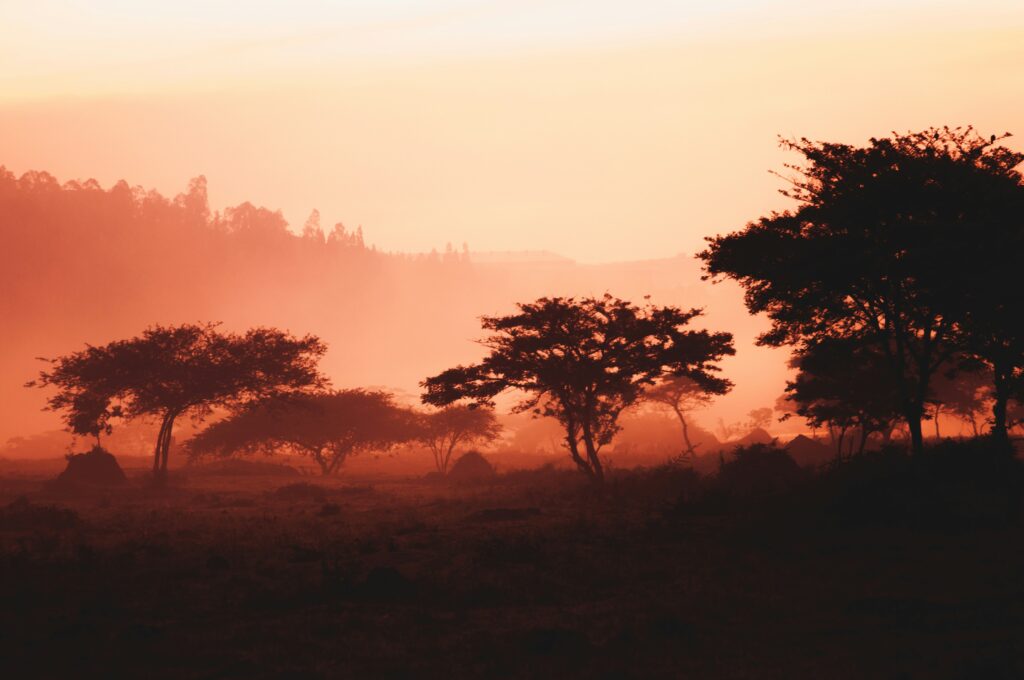
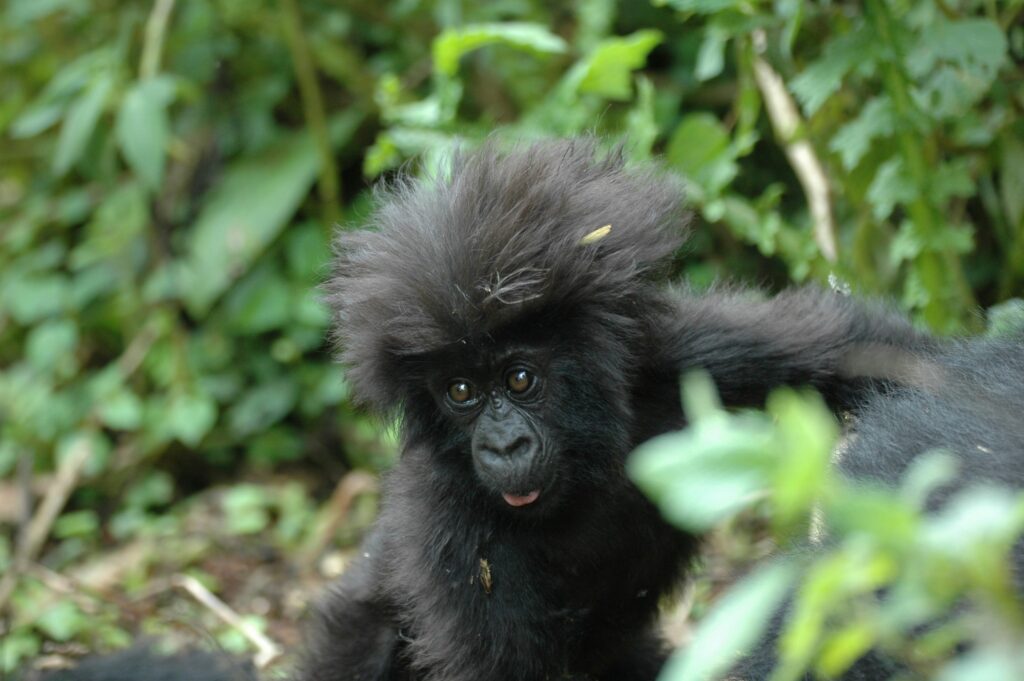
Gorilla Tracking, the unique opportunity to see gorillas in their natural habitat is unforgettable, some even say life changing. Encounters with gorillas as they go about their daily lives are carefully managed, with expert trackers and guides leading small groups of tourists up bamboo-covered slopes to spend a precious and awe-inspiring hour just a few feet away from the gentle creatures.
Imigongo, A distinctively Rwandan craft is the Imigongo or cow dung paintings that are produced by a local co-operative in the village of Nyakarambi near the border with Tanzania. Dominated by black, brown and white whirls and other geometric shapes, these unique and earthy works can be bought in craft markets throughout the country.
King’s Palace in Nyanza: A reconstruction of the traditional royal residence, the King’s Palace is a beautifully-crafted thatched dwelling shaped like a beehive. In olden times, Nyanza was the heart of Rwanda. According to oral tradition, it was the site of battles and power struggles. The capital of the kingdom had as many as 2,000 inhabitants, and huts built with the same methods as seen here.
Rwanda Art Museum, nestled in the heart of Kigali, the Rwanda Art Museum stands as a testament to the country’s vibrant artistic heritage. Boasting an impressive colonial building and a diverse collection of artworks, the museum offers a captivating journey through Rwanda’s art history. Upon arriving at the museum, visitors are immediately struck by the grandeur of the colonial-era building. Stepping through its doors, one is transported into a world where art and history converge. The museum, established in 2006, houses an extensive collection of artwork spanning several centuries, providing a comprehensive overview of Rwanda’s artistic evolution.
Economy: A Tremendous Recovery
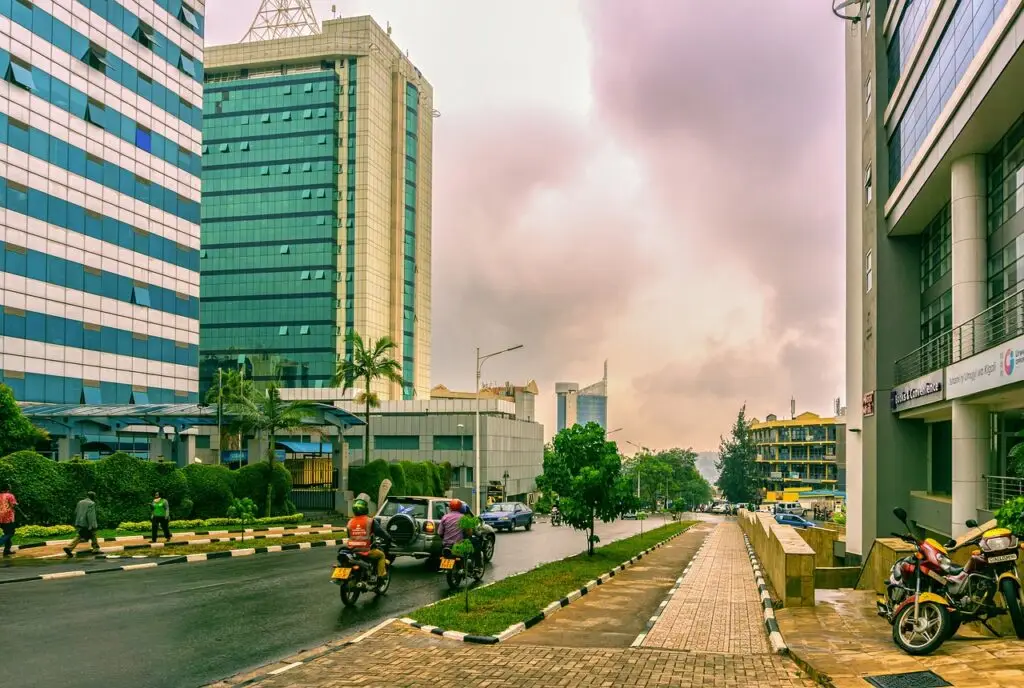
Rwanda’s economy has tremendously recovered over the last two decades. Rwanda’s Gross Domestic Product (GDP) has risen from $752 million in 1994 to $9.5 billion in 2018, and the GDP per capita has grown from $125.5 to $787 during the same period. Over the last ten years, Rwanda has implemented a successful doing business reform agenda in order to create a favorable and competitive business environment. As a result, Rwanda jumped over 100 places in the World Bank Doing Business Index, today ranking 38th globally and 2nd in Africa. Over the last two decades, Rwanda has positioned itself as one of the best luxury eco-tourism and conference destinations in the world. Thanks to the iconic Visit Rwanda brand and the vibrant meetings, incentives, conferences and events (MICE) sector, Rwanda’s tourism industry has totaled US $1.5 billion in investments since the year 2000. Rwanda has articulated a bold vision to become carbon-neutral by 2050, with ambitious climate adaptation and mitigation interventions, at a cost of $11 billion by 2030, it launched the Rwanda Green Investment Fund at the 2022 United Nations Climate Change Conference.
Doing Business in Rwanda
Ease of Doing Business Index Scores
Overall score: 76.5 (2020)
Starting a business score: 93.2 (2020)
Trading across Borders score: 75.0 (2020)
Enforcing Contracts score: 69.1 (2020)
Legal System: Rwanda’s legal system was initially based on the Belgian civil law system. However, since the turn of the millennium, and in particular after the country joined the Commonwealth in 2009, Rwanda has gradually shifted its legal system towards a more or less hybrid system comprising aspects of both common law and civil law. Rwanda is not a party to the Organization of the Harmonization of Business Law in Africa (OHADA), whose members are mainly located in Central and West Africa. Hence, no OHADA uniform act, such as the Uniform Act on Arbitration Law, applies in Rwanda. Foreigners are formally granted equal treatment as citizens. According to art. 29 of the 2003 Constitution, every individual has the right to due process of law.
Company creation procedures:
- Obtain an electronic signature from the Rwanda Development Board (RDB) – Online procedure.
- Register the company at the Rwanda Development Board (RDB) – Online procedure.
- Obtain and install software for VAT invoices from Rwanda Revenue Authority
- Register employees at the Social Security Office at the Rwanda Social Security Board (RSSB)
- Obtain a trading license (“patente”) from the Tax Administration – Sector Level
Rwanda Development Board (RDB)
Rwanda Development Board (RDB) is a government institution, mandated to accelerate Rwanda’s economic development by enabling private sector growth. Currently, RDB’s key services are: One Stop Center services (business and investment registration, visa facilitation, EIA, tax incentives management, etc.), Investment Promotion, Investment Deals Negotiation, Export & SEZ Development, Tourism and Conservation, and Private Sector Skills Development.
The investment promotion division is your gateway to investing in Rwanda. RDB showcase investment opportunities available in Rwanda priority sectors for investors seeking to make a profitable expansion into the region or the continent as a whole. The investment promotion division of the RDB
- Reaches out investors with specific investment opportunities through international road shows as well as individual business presentations by our foreign office representatives
- Facilitate prospecting investors coming to Rwanda by putting them in contact with people and entities they wish to meet;
- Organizes sector specific conferences and networking session held in Kigali
- Assists with inquiries and information gathering on behalf of the investor
- Seeking potential local and foreign partners in Rwanda for potential investors
The Investment promotion division primarily focuses on prospective investors in Agriculture and Agribusiness, Construction and Real Estate, Energy, Finance, ICT, Infrastructure, Manufacturing, Mining, and Tourism.
The Investment promotion department work with Rwanda’s diplomatic missions abroad as well as dedicated investment offices in Shenzhen-China, Quebec-Canada and Turkey to bring Rwanda’s investment opportunities to our potential foreign investors.
Why invest in Rwanda
- Fast growing: 2nd fastest growing economy in Africa (7.5% p.a. since 2007), Most improved nation in human development in the world, Young and growing population (~70% of population under 30)
- Low Risk: 5th safest country to walk at night worldwide, Lowest debt ratio in region & stable credit ratings, Stable currency
- Business friendly & modern: 2nd for doing business in Africa, 1st for Government transparency in Africa, Most women in Parliament and in a gender-balanced Cabinet in the world (respectively 61% and 50%).
- A regional platform: Strong African hub potential; highly connected African airline, 2nd MICE ranking in Africa; +19 ranks in 4 years, Growing bilingual, educated workforce (~50k tertiary grad./yr)
- IT ready: 1st in the EAC for network readiness, 5th in Africa, 95% 4G LTE network coverage; 7,000km fibre
Investment Opportunities:
Rwanda has an array of incentives for investors ready to invest in the country, in a wide range of sectors.
- Energy: 1- Standalone solar systems for households and other users. 2- Mini-grid systems to be installed from different resources solar, hydropower, and biomass ( 20 sites identified, and the feasibility is completed).
- Manufacturing: Incentives to support the manufacturing sector
- Corporate income tax holiday of up to 7 years is provided when investing at least an amount equivalent to 50 million USD
- Companies with Export Processing Zones (EPZ) status are exempted from customs taxes, CIT and VAT for an investor exporting more than 80% of production
- Preferential corporate income tax rate of 15% is accorded to an investor who exports at least 50% of the production
- Registered investor shall not pay capital gains tax
- Accelerated depreciation rate of 50% for the first year
- Foreign companies investing at least 250,000 USD are allowed to recruit three foreigners without a labor test.
- Exemption of imports duties on manufacturing inputs and equipment
- Financial services investment opportunities: 1- International bank representative office, 2- Agricultural financing, 3- SME financing, 4- Real estate investment trust.
- ICT infrastructure: Rwanda’s ICT competitive advantage
- 4500Km+ of Fibre-optic broadband cabling has been laid throughout the country connecting all 30 districts and with nine regional links to neighboring countries;
- 10 Gbps of broadband capacity
- 6% of population Connected the 4GLTE network
- Increased mobile penetration to 76.2%, with over 8.5 million subscribers.
- 1% of internet penetration across the country.
- Mining: Mining in Rwanda presents un exploited opportunities in ores, processing and diversification. Rwanda’s main mineral exports are ores processed to extract tin, tantalum and tungsten and few gold and gemstones. Mining is the second largest export in the Rwandan economy. In 2017, the sector generated about $373.4 Million of foreign exchange. All mineral exports from Rwanda are traceable through the tagging system currently accepted by the downstream buyers of the minerals. Exploration works to identify and delineate more mineral deposits are underway. A strong, investor friendly legal and policy framework has been put in place
Rwandan Flagship Projects
Bugesera International Airport: The $2 billion Rwandan airport that could help African aviation take off. Slated for completion in 2026, the new facility will boast a 130,000-square-meter main terminal building capable of accommodating 8 million passengers a year, a figure expected to rise to over 14 million in the following decades. Adjacent will be a dedicated cargo terminal, capable of accommodating 150,000 tons of cargo a year. Rwanda aims to become a Singapore-like regional aviation hub with this airport. Qatar Airways has taken 60% stake in the airport and is also in the process of acquiring a 49% stake in RwandAir.
KivuWatt power station: Rwanda has been exploring the use of gas from Lake Kivu for cooking, industrial use and vehicles. It is expected that the cooking gas produced from this lake could start being used by the end of 2023. The project involves an offshore gas extraction facility along with onshore gas processing and compression plants for CNG. This comes in the wake of the global struggle of high prices of gas and fuel. For thousands of years, volcanic activity in Lake Kivu has caused a massive accumulation of carbon dioxide and methane to dissolve in the depths of the water. The Engineers of the KivuWatt company have discovered a way to generate electricity from the lake.
Health
Travelers should ensure they are up to date with vaccinations, following the advice of their local healthcare provider, and should consider bringing a small first aid kit. A certificate of yellow-fever vaccination is required.
It is advisable not to drink tap water. Bottled mineral water can be bought in all towns – make sure the seal is intact.
Much of Rwanda lies at too high an elevation for malaria to be a major concern, but the disease is present and prophylactic drugs are recommended. Travelers should seek professional medical advice on taking anti-malarial medicines and take precautions to avoid mosquito bites, especially between dawn and dusk.
COVID-19
Covid-19 testing is no longer a requirement prior to boarding the flight to Rwanda. However, regular Covid-19 testing is encouraged.
Immigration
Citizens of all countries are allowed to get visa upon arrival without prior application. Citizens of country members to the African Union, Commonwealth and La Francophonie can get free visas upon arrival in Rwanda for a visit of 30 days.
A citizen of East African Community Member States can receive a pass/entry visa free of charge upon arrival for a six-month stay in Rwanda.
Citizens of countries that are not visa exempt have an option of applying online or at the Rwanda Diplomatic Mission of the country of residence before departure. Those applying online have the option to pay online or upon arrival. There is no single affiliated agent that is authorized to apply for a visa on your behalf.
Unique Facts about Rwanda
Umuganda: Rwanda is only country in the world where people alongside their President (Paul Kagame and First Lady Mrs. Jeannette Kagame in the picture) participate in National service activities “Umuganda” every last Saturday of month. Capital city of Rwanda (Kigali), is the most cleanest city in Africa, as the Government of Rwanda implemented the ban for the use of plastic bags/sachet ”Amasashi” for environmental protection.
Airborne drones for medical deliveries: The country introduced the uses of drones in medical services like distribution of blood to the emergency stations. For hospitals in need of critical medical supplies, Rwanda’s roads pose a real problem. Hospital administrators worry most about blood and blood products, which have a short shelf life and strict storage requirements. It’s also difficult to predict how many packs of each blood type will be needed at a given facility, and when.
Rwanda Travel Business Assistance
Are you planning to move your business to Rwanda or open up Rwanda as a new market? Perhaps there is a conference in Rwanda you need to attend and you need some help. We are here for your Rwanda Travel Business Assistance.
